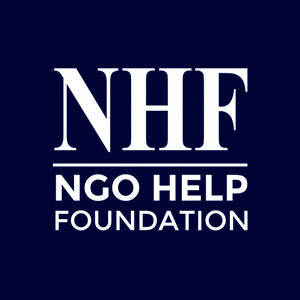Services for Corporate Social Responsibility

INTRODUCTION
Maximizing CSR Impact
We believe in maximizing CSR impact by aligning social causes with your business strategy and community needs. At Avad India, we create effective CSR programs by identifying key intervention areas through surveys, setting clear objectives, and designing delivery frameworks. We ensure partner credibility through rigorous due diligence, including financial and legal reviews, and beneficiary feedback. Our project management focuses on ethical, efficient implementation, with a strong monitoring framework and compliance checks. Finally, our impact assessment evaluates the outcomes, Social Return on Investment (SROI), and provides insights for scaling or adjusting the program.
We believe impact of CSR can be maximized on Community and Company by developing strategic approaches. CSR programs that leverage an organization’s core competency and are based on its core values, are the ones that drive noticeable impact.
NHF identify, screen and recommend the best NGO partners for your company to work with while implementing your CSR strategy. Our rigorous due-diligence process ensures that our partners are trusted and committed to social development.
Doing good for no reward is Philanthropy. Doing good for mutual reward is CSR. In the digital era, CSR communication helps to increase your brand’s awareness and equity and in turn establishes you as a leader.
NHF ensures that all your legal compliances in accordance with Companies Act, The CSR Rules 2014 and any other prevailing regulation,
is complied with.
CSR Rules mandate a company to institute a ‘Transparent Monitoring Mechanism’ for their projects. We help our clients to design and deliver the on-ground project in an efficient, effective and ethical manner along with regular monitoring and evaluation.
NHF helps you to assess the impact of your CSR initiatives and achievement against the desired objectives. It helps you to decide whether the CSR investment is yielding desired Social Return on Investment.
ROLE OF NHF IN CORPORATE CSR:
- Corporates need proper documentation from NGOS like 12a, 80g, csr-1, NGO darpan unique id, e-anudaan, fcra etc. NHF documentation wing occupied with experienced chartered accountants, company secretaries, and advocates offers help to NGOS for completing these necessary documents for CSR applications for submitting before corporates.
- NHF is India's largest project specialized team for CSR proposals and detailed project report preparation. we will prepare detailed project reports and effective CSR project proposals for presenting before corporates and donors.
- The NGOS need better and effective presentation of their documentation and project proposal before corporates and donors. Our expert project team will represent for NGOS amd will present their projects before corporates.
Applicability of CSR in India
The CSR provisions apply to companies meeting specific financial thresholds in the preceding financial year:
- Net worth exceeding Rs. 500 crore
- Turnover surpassing Rs. 1,000 crore
- Net profit crossing Rs. 5 crore
CSR initiatives offer numerous benefits to companies:
- Enhancing public image and consumer favorability through societal contributions.
- Increasing media visibility, thereby positively impacting brand value.
- Setting companies apart from competitors by fostering community engagement.
The Board of Directors plays a pivotal role in CSR implementation:
- Approving the CSR policy in alignment with the recommendations of the CSR Committee.
- Ensuring adherence to the policy and appropriate utilization of allocated funds.
- Disclosing CSR Committee composition and policy contents in the Board's Report.


Calculation of Net Profit for CSR
Net profit computation for CSR purposes adheres to Section 198 of the Companies Act, 2013. It involves various deductions and exclusions, ensuring a fair assessment of available funds for CSR activities.
Transfer and Use of Unspent Amount
Companies are mandated to transfer unspent CSR funds to specified funds within stipulated timeframes, ensuring efficient utilization for societal welfare projects.
In the event of unutilized funds pertaining to an ongoing project within the company’s CSR framework, the company is required to transfer such unspent amount to a dedicated account, termed as the ‘Unspent Corporate Social Responsibility Account’, held with any scheduled bank within 30 days following the conclusion of the financial year.
Subsequently, the company must allocate the funds residing in the ‘Unspent Corporate Social Responsibility Account’ towards fulfilling its CSR obligations within a period of three financial years from the date of the transfer. Should the company fail to utilize the funds within the stipulated three-year period, it is mandated to transfer the remaining amount to the specified fund as mentioned above within 30 days upon the conclusion of the third financial year.
CSR Committee Applicability and Duties
CSR Committees, comprising a minimum of three directors, including at least one independent director, are responsible for formulating CSR policies, recommending expenditure, and monitoring implementation.
CSR Reporting and Policy
CSR reporting is integral, with annual CSR reports to be included in the Board’s Report or as an Annexure in the balance sheet for foreign companies. CSR policies must outline activities distinct from regular business operations, promoting transparency and accountability.
Permitted CSR Activities Under Schedule VII
CSR activities encompass a wide spectrum, including but not limited to:
- Poverty alleviation
- Education enhancement
- Gender equality
- Environmental sustainability
- Disaster management, among others
Fines and Penalties for Non-Compliance
Failure to adhere to CSR spending, transfer, and utilization regulations can result in penalties for the company and its officers.
According to the Companies Act, 2013, non-compliant companies may face a penalty of Rs. 1 crore or twice the required transfer amount to the CSR fund specified in Schedule VII or the Unspent Corporate Social Responsibility Account, whichever is lower.
Additionally, officers of such companies who default in compliance may be subject to penalties of Rs. 2 lakh or one-tenth of the amount required to be transferred to the CSR fund specified in Schedule VII or the Unspent Corporate Social Responsibility Account, whichever is lower.
Reason for Introduction of CSR for Companies
The introduction of CSR provisions in the Companies Act, 2013 reflects the evolving role of corporations in societal welfare, emphasizing responsible corporate citizenship beyond profit generation.








